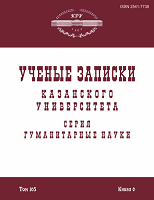Правовые основы использования искусственного интеллекта при принятии решений органами публичной власти
The Legal Basis for the Use of Artificial Intelligence in Decision-Making by Public Authorities
Author(s): T.G. KakokhoSubject(s): ICT Information and Communications Technologies, Philosophy of Law, Sociology of Law, Administrative Law
Published by: Казанский (Приволжский) федеральный университет
Keywords: artificial intelligence; public authority; public administration; digital technologies; digital judge; digital controller;
Summary/Abstract: This article centers on the legal regulation of artificial intelligence (AI) use in public administration. The main features of AI, the risks associated with its use in the public sector, and its key functions were outlined. The program and strategic plans for AI introduction in Russia were systematized. The prospects for creating a digital state were highlighted. Through careful analysis, the most viable areas of public administration were identified where AI can realize its full technical potential without entirely taking over the tasks of human officials (such as digital controllers, judges, and investigators). A clear distinction was revealed between “weak” AI, a technical assistant and decision-making tool for human officials, and “strong” AI, a fully-fledged subject of legal public relations with legal capacity. The connection between the development of new technologies and the evolution of the state apparatus was stressed. It was concluded that the integration of multiple algorithms in management activities is causing a shift from quantitative to qualitative changes: the ways state bodies exercise their public powers are being altered and revised.
Journal: Ученые записки Казанского университета. Серия Гуманитарные науки
- Issue Year: 165/2023
- Issue No: 6
- Page Range: 28-40
- Page Count: 13
- Language: Russian

